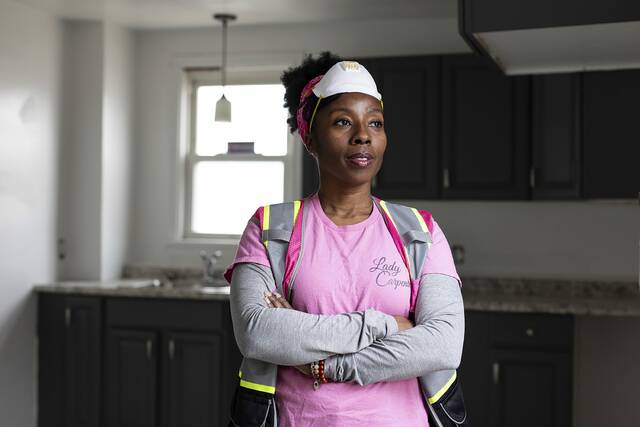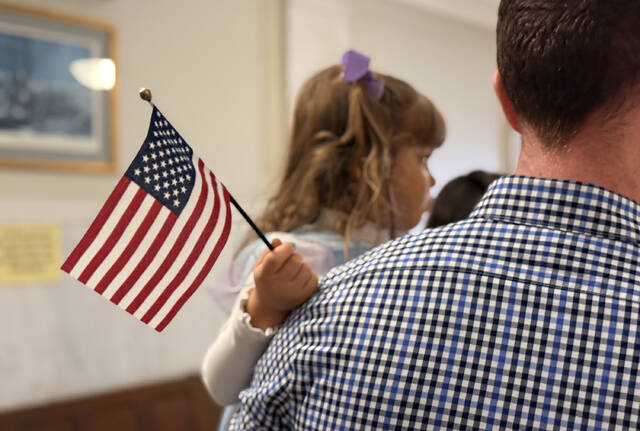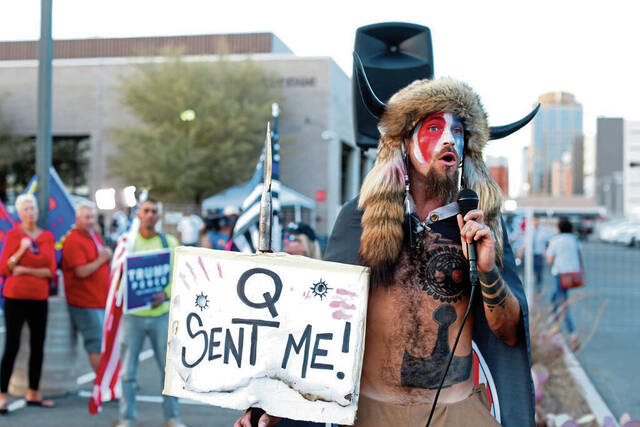Last month, Pittsburgh Councilwoman Barb Warwick said she hoped a package of bills she was introducing would spark a larger conversation about supporting LGBTQ+ people and signal that everyone is welcome at a Pittsburgh, even as the Trump administration put vulnerable communities “under attack.”
On Tuesday, Warwick claimed a victory as she and her colleagues unanimously approved legislation to enhance protections for the LBGTQ+ community.
One of the bills would deprioritize enforcement of any state or federal measure that could make it illegal to express sexual orientation or gender identity.
It aims to protect people who do things like participate in drag shows, use restrooms that match their gender identity, display pride flags, engage in consensual sexual activities between adults, obtain gender-affirming medical care, participate in athletic activities based on gender identity or seek housing or employment as a member of the LGBTQ+ community, even if the state or federal government barred such activities.
Another measure would bar health care providers from denying people medical care because of their gender identity or gender expression.
The bill comes as UPMC has halted gender-affirming care for people younger than 19. Elected officials and transgender advocates have condemned the health care giant for its decision. Federal officials have pushed against gender-affirming care, particularly for minors.
Rachel Shepherd, who heads the Pittsburgh Commission on Human Relations, during a press conference last month urged anyone impacted by UPMC’s halt on gender-affirming care for kids and teens to reach out to the commission because each case is different. The commission investigates discrimination claims.
Nicole Gallagher, of Spring Hill, last week encouraged council members to support the enhanced protections for the LGBTQ+ community.
As a stepparent to a transgender teenager, she said, she couldn’t fathom what it would be like if her stepdaughter couldn’t receive medical care or use the bathroom of her choice.
“It would be devastating and completely unsafe,” Gallagher said. “This is a life death matter for our children, our loved ones and our community.”
Lower prostitution penalties
Warwick’s third bill reduces penalties for sex work by allowing police to charge prostitution as a summary offense.The penalty would not exceed $100, and the court could order community service in lieu of a fine.
Prostitution remains illegal under state law, which treats it as a misdemeanor offense in most cases.
Warwick said until now, police had to charge it as a misdemeanor but this would give them the option of a lower penalty. They could still opt for a misdemeanor, if, for example, there was a repeat offender or someone they felt needed an additional penalty.
“I would love if we could legalize consensual sex work but we cannot in the city. That would be a state issue,” Warwick said at last week’s council meeting. “This is just about the penalty, very similar to the change in penalty for cannabis possession.”
In 2016, council adopted an ordinance to reduce the penalty for smoking pot in public to a summary offense.
Warwick also pointed out police have limited resources and should be focused on violent crime.
In her legislation, Warwick noted that sex workers who face misdemeanors may find the charges can be a barrier to finding employment and housing or winning custody for their children.
Theresa Nightingale, an organizer with the Pittsburgh Coalition for Safer Sex Work, said reducing the penalty will empower people to seek help and report crimes to police without fear of significant repercussions if they’re engaging in sex work.
“This ordinance is a vital step to protecting our community,” she told council.
Barbara Ringler during a recent council meeting raised concerns that lessening criminal penalties for sex workers could encourage human trafficking and hinder police.
But Nightingale said she believed the measure could improve relationships between police and the community, particularly those engaged in sex work.
“Everyone deserves to feel safe while seeking help,” she said.








